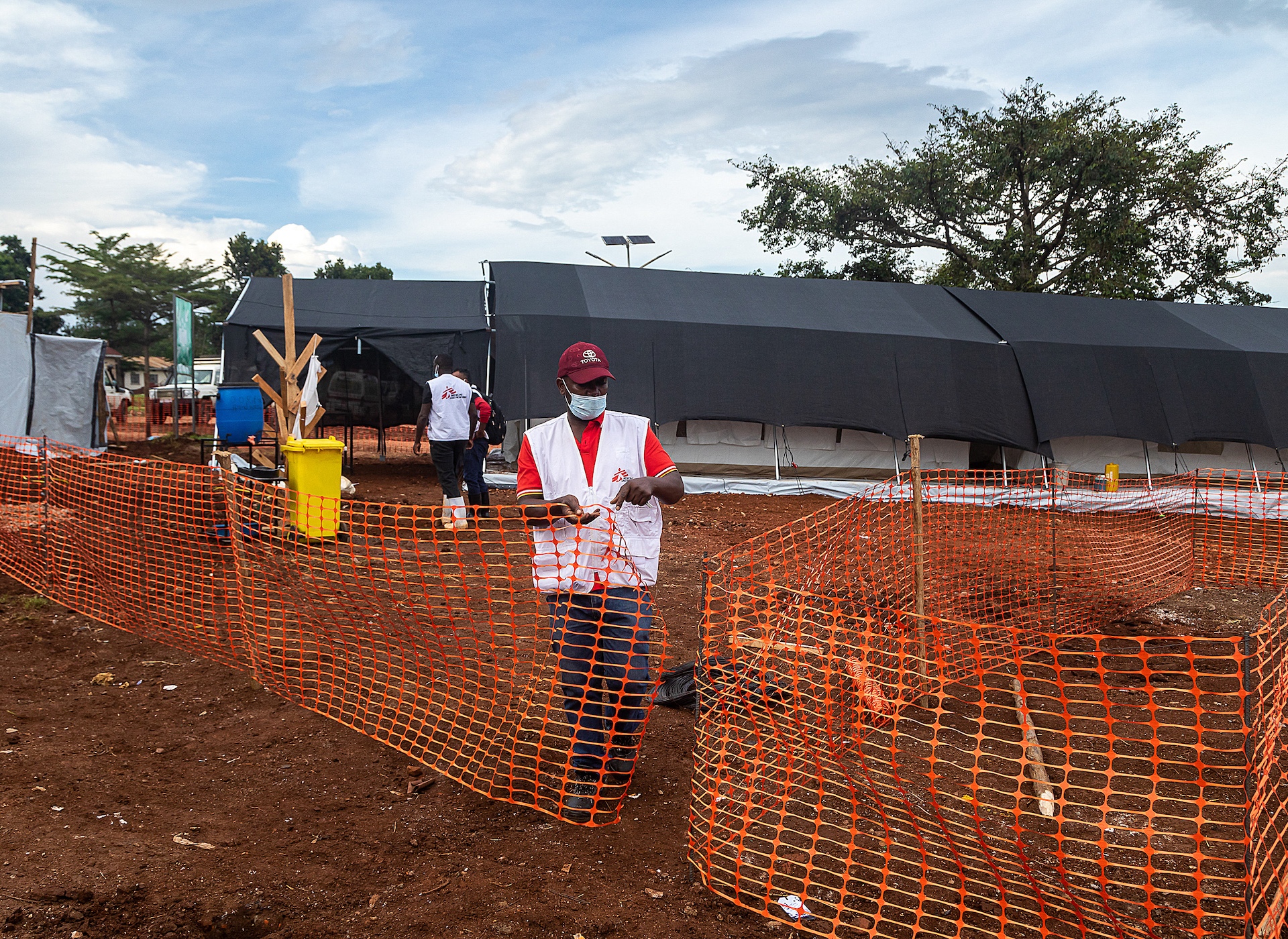Health ministry reports 19 deaths and 58 confirmed cases since the outbreak was first reported on September 20.
Ugandan President Yoweri Museveni has ordered an immediate lockdown and imposition of a dusk-till-dawn curfew for three weeks in two districts in a bid to stop the spread of Ebola.
Places of worship, markets, bars and entertainment will be closed and restrictions have been placed on movement in and out of the two central districts of Mubende and Kassanda for 21 days.
“I now direct as follows: movements now into and out of Mubende and Kassanda districts are now prohibited,” said Museveni in a televised address on Saturday.
“If you are in Mubende and Kassanda districts, stay there for 21 days,” Museveni, who has ruled Uganda since 1986, said.
The health ministry said on Saturday that there have been 19 deaths and 58 confirmed cases of the often-fatal viral haemorrhagic fever since the outbreak was first reported on September 20.
Authorities said the outbreak is concentrated in the two affected districts and has not reached Kampala, the capital of 1.5 million, despite a husband and wife testing positive there.
Cargo trucks to be allowed
The Ugandan president, however, said cargo trucks will be allowed to enter and leave the two areas, but all other transport has been suspended.
“These are temporary measures to control the spread of Ebola. We should all cooperate with authorities so we bring this outbreak to an end in the shortest possible time,” he added.
Museveni had already ordered traditional healers to stop treating sick people and ordered police to arrest anyone suspected of having contracted the virus who refused to go into isolation.
Ebola is spread through bodily fluids, with common symptoms being fever, vomiting, bleeding and diarrhoea.
Outbreaks are difficult to contain, especially in urban environments.
Uganda’s last recorded death from a previous Ebola outbreak was in 2019.
The particular strain now circulating in Uganda is known as the Sudan Ebola virus, for which there is currently no vaccine.
The World Health Organization says clinical trials could start within weeks on drugs to combat that strain.
